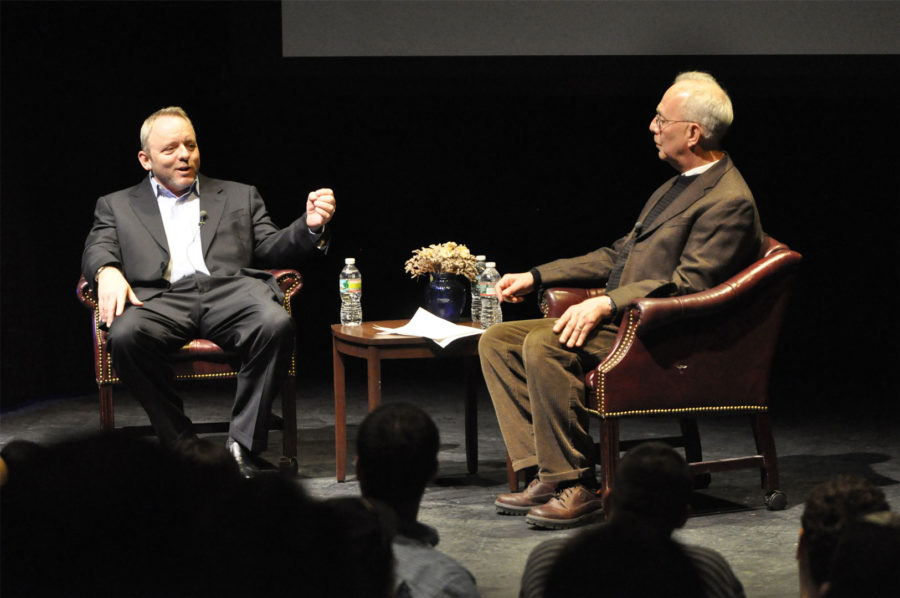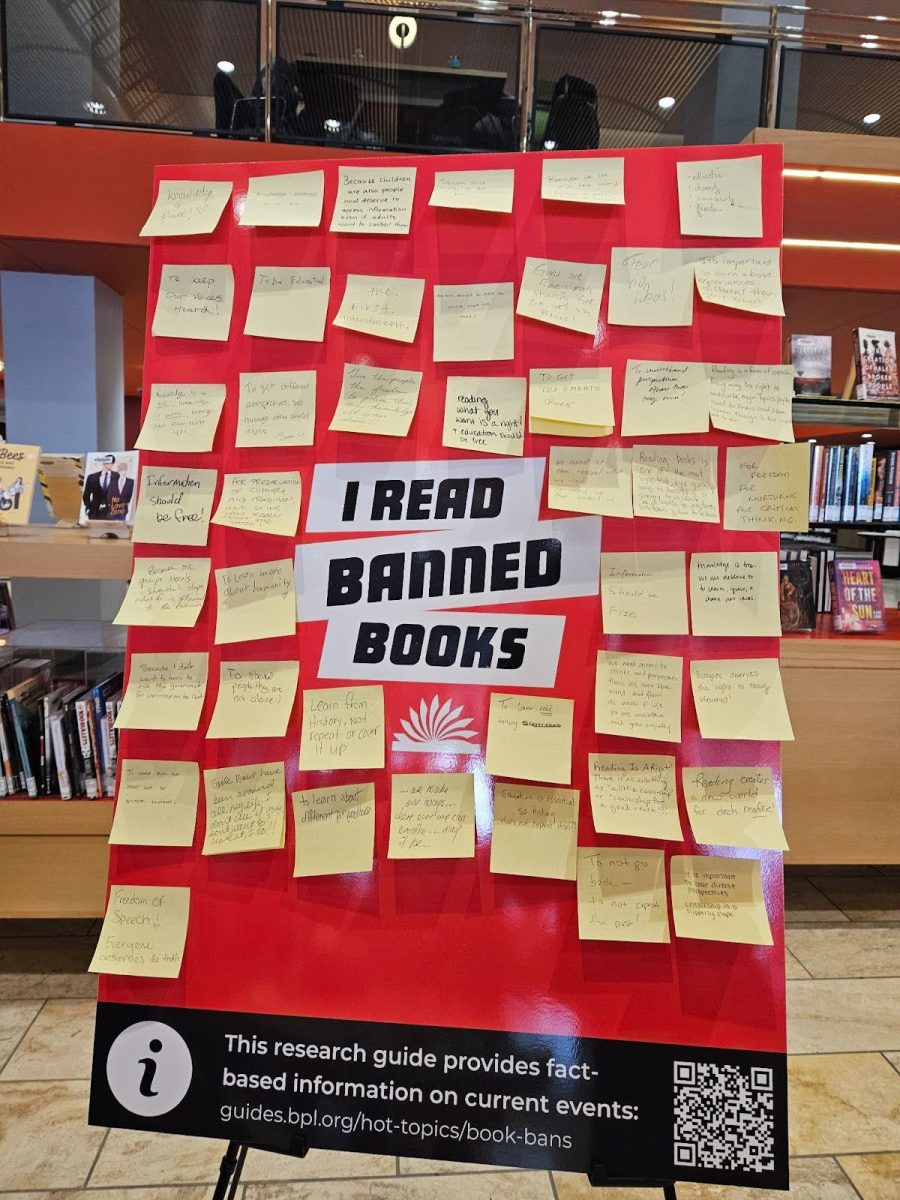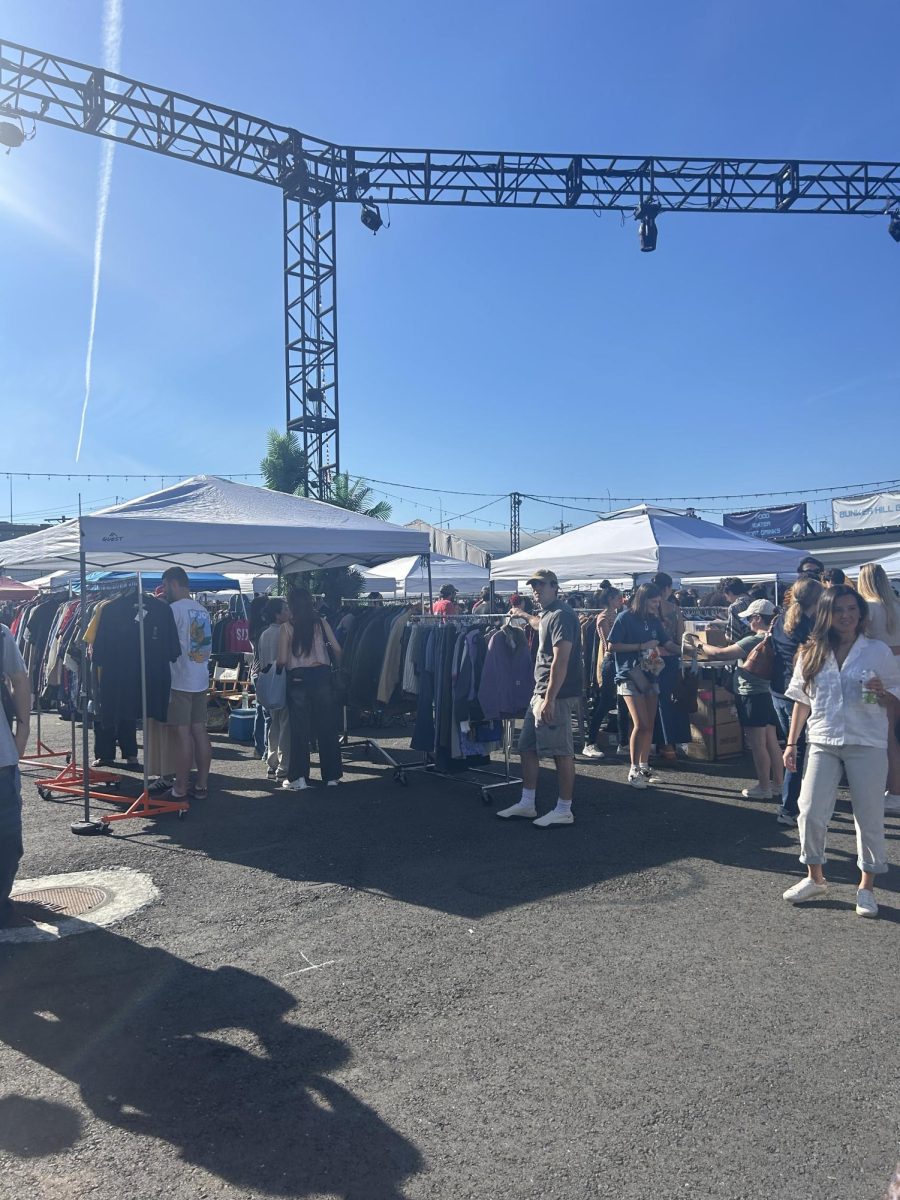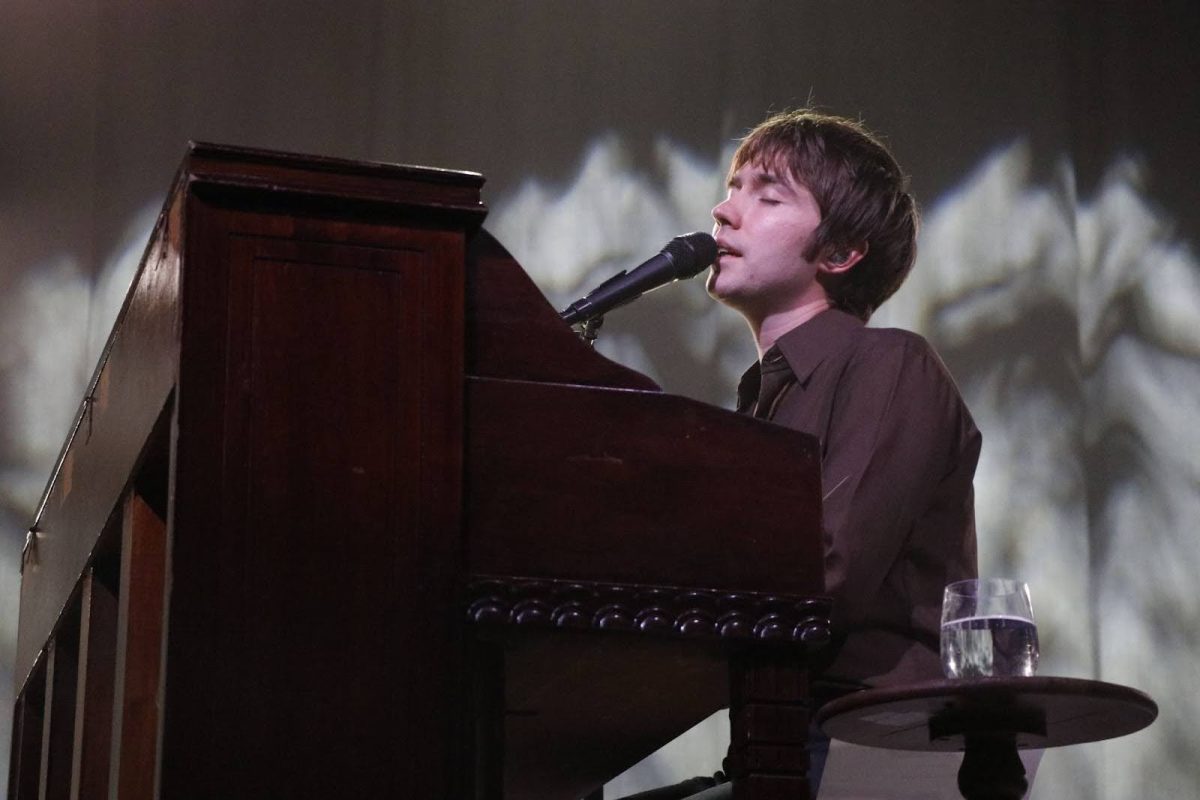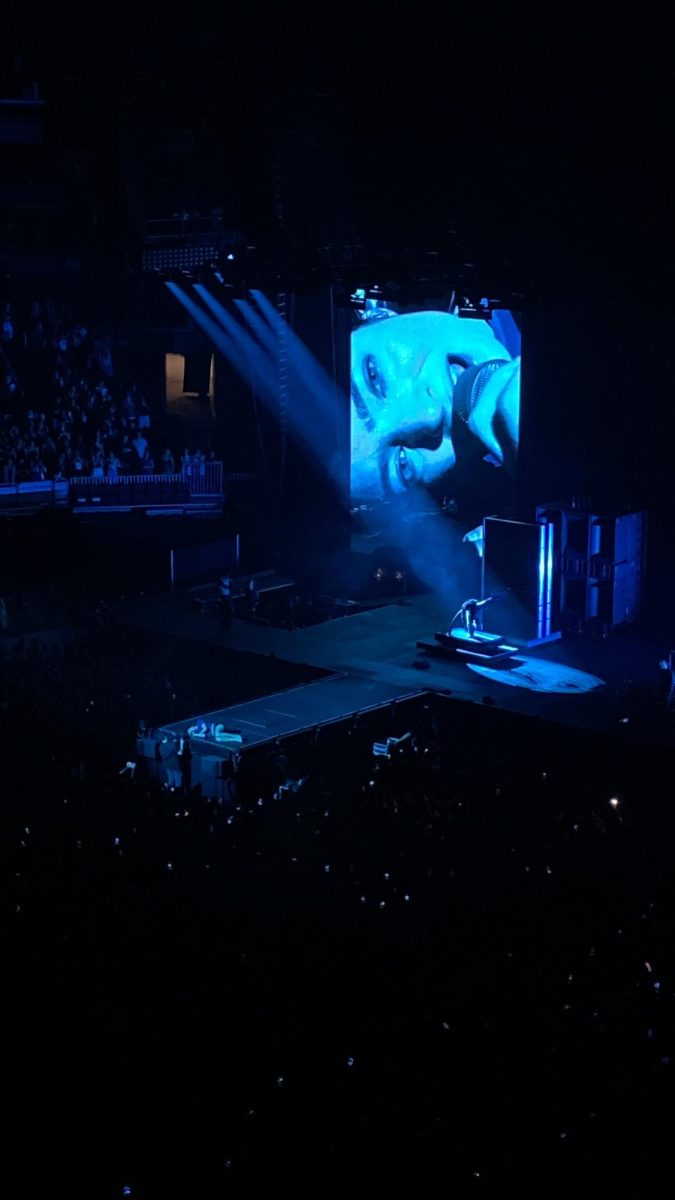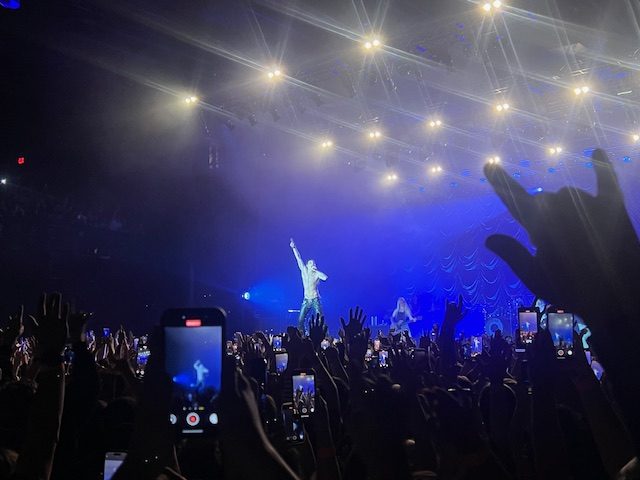Dennis Lehane sat comfortably in front of a packed house at the Modern Theatre last Thursday, discussing his inspirations and dissecting his long, successful career as a novelist.
An enthusiastic crowd joined him, and was eager to ask questions and prod the mind of a man that has produced some of the most enduring novels of the century.
It was another chapter in Suffolk’s successful cinema series, and this time they nabbed a guy who has had three of his books transformed into successful Hollywood films, including Gone Baby Gone, Shutter Island, and Mystic River.
Professor Monika Raesch, who, along with Jason Carter and Sasha Lekic, has made this sort of event a possibility, introduced the acclaimed writer, who then engaged in an informative discussion with Professor Gerald Peary.
Earlier in the day, Lehane graciously spent time with one of Raesch’s classes, something he agreed to do without hesitation. It was an opportunity many of the school’s aspiring writers will remember for years to come.
“In the class he gave in the afternoon on how to write, how to approach [writing a story], it was perfect. It was exactly what we needed,” said Raesch. “That’s exactly why we wanted him.”
During the evening’s question-and-answer session, Lehane described in detail how he grew up in a storytelling culture, with Boston serving as the perfect backdrop for the many tales he procured over the years.
He told a funny story, for example, of his father bringing him to the bar when he was a kid, with a young Dennis ordering a ginger ale and sitting there listening to stories told by the locals.
It was fitting that he delved into his origins as a writer, and explained that in high school he became fixated with writing short stories. This made him realize he might have a future in the story-telling business.
“I realized one day that I sucked at everything—except writing,” he said with a smirk. “I can’t fail in [writing]. Whatever it is, I have to learn this.”
Lehane was very specific about being a character-driven author, and went as far as to say, “I can’t chase characters down to write about them.”
The discussion was interposed with clips from three of the films based on his books, as well as scenes from the acclaimed HBO drama The Wire, for which he was a writer during seasons three, four and five. He was very candid speaking about the process of getting his stories onto the big screen.
During the filming of Mystic River, for example, he told the crowd he worked closely with actor Sean Penn and director Clint Eastwood, with the latter asking for his advice and keeping him close to the film during its creation.
Many people have wondered what sort of role he has played in the reincarnation of his stories. Many assume he pens the screenplays for these films, but he is quick to point out that he stays away from that aspect of filmmaking.
“I think a book is an orange and a film is a giraffe,” he said rather candidly, explaining that while he wrote the books, those who bring them to life on the screen should be allowed to work separately from him.
That’s not to say he isn’t involved in the creative process. Each of the three directors he’s worked with—Ben Affleck, Martin Scorcese and Clint Eastwood—have made him an integral part of making each film.
“I think at the end of the day, if you do your job, you’re fine,” he explained. “I just want them to get the essence, I don’t care about anything else.”
While Lehane has only seen his films once each, he went out of his way to praise the work Affleck did with Gone Baby Gone. Being a Dorchester native, he was pleased to see the area portrayed so accurately.
In the end, it was a night full of laughs, good advice, and meaningful stories. Lehane showed how incredible it can potentially be sometimes to tell a simple tale, and have it reach so many people.


